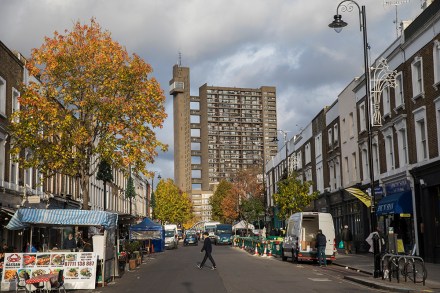Bringing modernism to the masses in 20th-century Britain
The second world war was won in the cafés of central Europe – the intellectual milieu that produced Edward Teller, Leo Szilard and Eugene Wigner, and before them Albert Einstein. But even though America was an alluring destination, many of the 1930s escapees from Nazism ended up in Britain. There were scientists in their number, too, but Owen Hatherley concentrates on the newcomers’ effect on how post-war Britain looked. He examines their role in photography and film; in the design of printed books; in art, especially public art; and in architecture and town planning. Perry Anderson’s 1968 essay ‘Components of the National Character’ was dismissive of the impact of the


